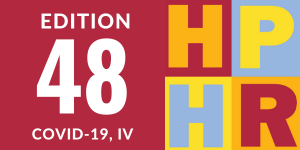As the COVID-19 pandemic unfolded, more than 3,000 local health departments (LHD) in cities and counties across the U.S. were tasked with a responsibility unlike any they had experienced in a century. Faced with the duty of providing how-to information about a disease that did not exist before LHDs faced unprecedented organizational, managerial and clinical challenges (Nembhard et al., 2020).
Resolve to Save Lives (RTSL), an initiative of the global public health organization Vital Strategies, works to strengthen health systems by designing and supporting scalable solutions to prevent disease and death around the world. As technical assistance providers during the COVID-19 pandemic, we witnessed the almost immediate action of small- and medium-sized health departments to develop and roll out large-scale testing and vaccine initiatives; hire, train and manage cadres of contact tracers and case investigators; coordinate support services for individuals in isolation and quarantine; manage public perceptions and expectations through public relations and media campaigns; and process and report large amounts of epidemiological data daily.
Making decisions and responding quickly was crucial to containing the novel coronavirus. Processes that public health typically relies on to form knowledge, test hypotheses and develop evidence-based policy and practice were ill-suited to support public health practitioners who were required to make policy decisions and implement interventions immediately, despite a lack of empirical data and evidence.
Globally, researchers quickly became aware that “[…] we cannot act with the same sense of certainty about ‘what works’. Moreover, there is limited time for ‘business-as-usual’ processes of research translation” (Lancaster et al., 2020).
Groups such as the Centers for Disease Control and Prevention, the Association of State and Territorial Health Officials, the National Association of County and City Health Officials, Johns Hopkins University and others quickly began providing guidance, tools, trainings and webinars. However, the opportunity to informally learn, share promising practices and strategize around effective COVID-19 response across jurisdictions was limited. In a brief online survey of local health department leadership, one official stated, “We have not had much opportunity to come up for air over the past year to speak directly with others” (Siegler, A., 2021). There was often a gap between official guidance and what was possible, or necessary, in an emergency. LHDs lacked concrete support around navigating these decisions and information on how other jurisdictions were handling similar challenges, including issues of equity and access to COVID-19 services. Often, cities and counties facing similar challenges in the COVID-19 response were creating solutions independently, in a vacuum, without the benefit of learning from shared experiences. According to one midwestern county health official surveyed, “We’re all inventing these things on our own” (Siegler, A., 2021).
Management research has found that the most successful organizations facing complex problems are those that harness collaborative partnerships. “Having outside partners […] grants access to novel knowledge about innovations and their implementation, more minds for problem-solving and help for dealing with issues like equipment and personnel shortages“ (Nembhard et al., 2020).
RTSL formed its U.S. COVID-19 Response Program in April 2020 to help county and city health departments model effective and equitable COVID-19 response at the local level. As part of this initiative, and to address the gap of informal cross-jurisdictional learning opportunities, RTSL began hosting monthly online meet-ups for city and county health department leadership – known as “COVID Response Virtual Cafés” — in October 2020. The cafés are designed as an opportunity for LHD staff to share promising COVID-19 response practices and jointly strategize around common challenges.
The cafés are not widely advertised; participation is by invitation only, and is limited to LHDs from RTSL’s partner jurisdictions, which represent multiple regions throughout the United States. Participation has increased over time as we have continued to widen our scope of partnerships with LHDs.
The monthly COVID Response Virtual Cafés focus on topics pertinent to the current challenges of the pandemic and are informed by LHD interests. Café topics to date are listed in Table 1. At each café, after the topic is introduced, a participating jurisdiction presents a promising solution, idea or practice from the field. The rest of the session serves as an open forum for participants to discuss their experiences, challenges and ideas.


